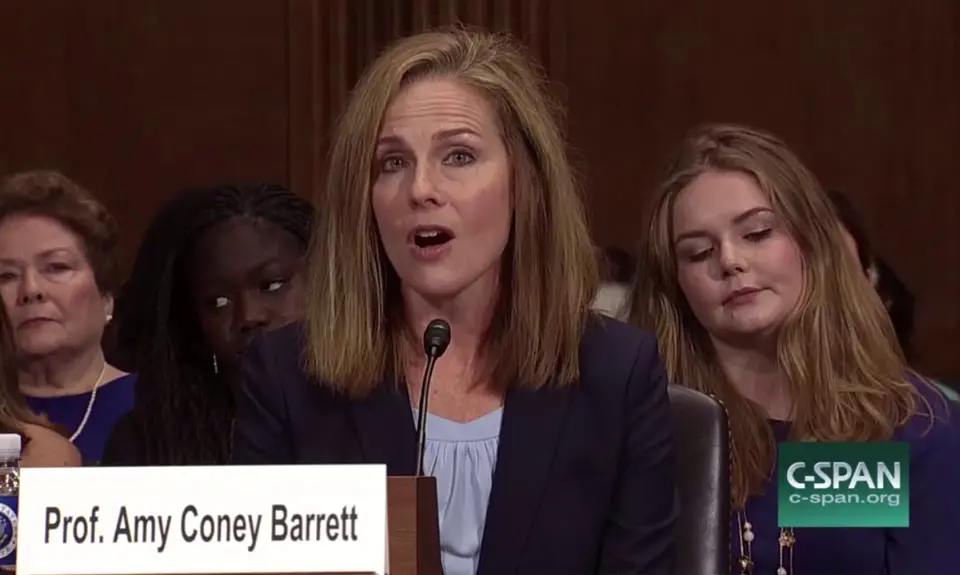Right wing organizations are at it again, with phony accusations that Democrats are anti-Catholic. This time, their targets are the Democrats on the Senate Judiciary Committee. The senators’ crime: asking a judicial nominee questions about an article she wrote that is directly related to how she would rule as a judge.
Amy Coney Barrett, a law professor at Notre Dame, has been nominated to serve on the Seventh Circuit Court of Appeals. As an academic, Barrett writes. A lot. In an article she co-authored entitled “Catholic Judges in Capital Cases,” Barrett wrote extensively about the responsibility of a Catholic judge who opposes the death penalty when she is assigned a capital case. She wrote:
The Catholic Church [is engaged in] a campaign against capital punishment. This puts Catholic judges in a bind. They are obliged by oath, professional commitment, and the demands of citizenship to enforce the death penalty. They are also obliged to adhere to their church's teaching on moral matters.
She also stated:
[L]itigants and the general public are entitled to impartial justice, and that may be something that a judge who is heedful of ecclesiastical pronouncements cannot dispense.
While the article focuses on the death penalty, she acknowledges that the issue applies any time a judge finds herself religiously prohibited from carrying out the law. In fact, Barrett appears to have an even stricter approach to abortion than she does to capital punishment:
The proclamations at issue here are not flat prohibitions like the ban on abortion, which (properly defined) is always immoral. Capital punishment, the pope declares, is permissible “in cases of absolute necessity[,] when it would not be possible otherwise to defend society.”
With written statements such as these, a senator would be negligent not to probe into whether and how Barrett’s personal beliefs would affect her decisionmaking as a judge. This is anything but anti-Catholic or anti-Christian.
Her personal views, per her own admission, are intimately connected to how she would act as a judge.
During the hearing, she told the senators that the article was only about district court judges, and that it did not discuss circuit court judges such as she has been nominated to become. But in fact, Barrett devotes several pages to appellate judges in capital punishment cases, discussing when they might be even “more culpable than the trial judge.”
Barrett wrote—correctly—that you can’t assume that a nominee or judge has the same beliefs about capital punishment just because they are Catholic. And no one is doing that.
But she does have those beliefs, and has written extensively on how they should affect the conduct of a judge. Asking her about this is not anti-Christian. And the accusation raises questions as to why right wing groups are so desperate to prevent anyone from asking much-needed questions.
